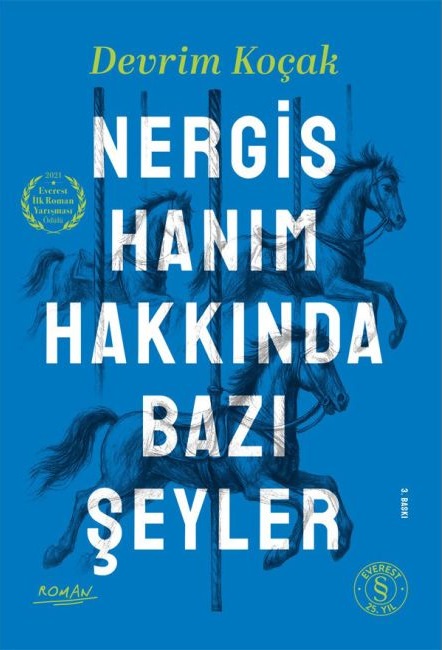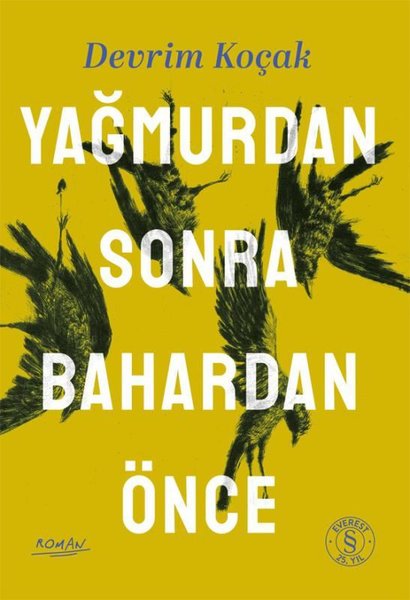In Ernest Hemingway’s “The Old Man and the Sea,” does struggling to achieve a goal even if one cannot achieve it carry existential meaning?
Ernest Hemingway’s The Old Man and the Sea deeply questions one of the fundamental questions of human existence, namely the relationship between struggle and the search for meaning. Santiago’s epic struggle with a giant swordfish is not only a physical effort, but also represents man’s own limits, his relationship with nature, and his effort to create existential meaning.
Existentialism and the Creation of Meaning
Existential philosophy, especially in the works of Jean-Paul Sartre and Albert Camus, argues that man cannot find a ready-made meaning in the universe, and that meaning is created by the individual’s own actions and choices. Santiago’s struggle can be read as a powerful existential metaphor in this context. Although catching the fish is a material goal for Santiago, the real issue is his stance in the process of achieving this goal. In line with Sartre’s principle that “existence precedes essence,” Santiago’s identity is shaped by his determination to struggle and the authentic stance he displays in this process, rather than whether or not he catches the fish. Santiago’s continued pursuit of the sea, even though he fails to achieve his goal, is a way of defining his own existence. This is a reflection of man’s effort to create his own meaning in a meaningless universe, in an existential sense.
Santiago’s words, “Man can be destroyed but not defeated,” crystallize this existential resistance. Although the fish is eaten by sharks, Santiago’s struggle has value in itself. It points to man’s capacity to construct his own essence, independent of external consequences. From an existential perspective, struggling is more important than reaching a goal, because struggle expresses the individual’s freedom and will to create his own meaning.
Stoicism and Intrinsic Value
Stoic philosophy, especially in the writings of Epictetus and Marcus Aurelius, emphasizes that the only thing a person can control is his own attitudes and actions. External consequences—for example, whether Santiago brings the fish to the harbor—are secondary to the Stoic perspective. Santiago’s struggle with the fish is an application of the Stoic virtues (wisdom, courage, justice, and moderation). Despite nature’s cruelty, physical exhaustion, and despair, he maintains his inner discipline and dignity. His respect for the fish and his equal relationship with it as a rival reflect the Stoic principle of living in harmony with nature.
From the perspective of Stoicism, Santiago’s struggle is meaningful regardless of whether he reaches the goal or not, because the meaning depends on his own will and moral stance. The fact that the sharks destroy the fish is an event beyond Santiago’s control, but his desire to return to the sea despite this loss is an example of Stoic acceptance and endurance. In this context, the struggle carries existential meaning as an expression of inner virtue, not external success.
Absurdism and the Rebellion Against Meaninglessness
Albert Camus’ philosophy of absurdism centers on the tension between man’s search for meaning in the universe and the universe’s indifference to this search. In Camus’s The Myth of Sisyphus, Sisyphus’ punishment for rolling the rock up the hill is a symbol of a meaningless struggle; however, Sisyphus rebels against this meaninglessness and creates his own meaning. Santiago’s struggle with the fish provides a striking parallel to this absurd situation. The effort he spends to catch the fish becomes “meaningless” with the intervention of the sharks; since there is no tangible result of his efforts. However, Santiago’s ability to maintain his hope and determination to fight despite this defeat echoes Camus’s concept of “rebellion against the absurd.”
Camus argues that the absurd hero accepts meaninglessness but does not submit to it. Santiago accepts the loss of the fish, but this does not prevent him from setting sail. His struggle is an expression of man’s effort to protect his own values and dignity in an absurd universe. In this context, struggling, even if he cannot reach the goal, carries an existential meaning from the perspective of absurdism; because it is the way man asserts his own existence against meaninglessness.
Nature and Man: The Universal Dimension of Struggle
Santiago’s view of the sea and the fish not as an enemy but as a companion and rival reveals not only an individual but also a universal dimension of the struggle. In Hemingway’s work, nature is a mirror reflecting man’s own limitations and fragility. Santiago’s struggle with the fish is a process of man’s confrontation with nature and thus with his own existential reality. Even if he fails to achieve his goal, this confrontation is part of man’s effort to understand his own essence and his place in the universe. This also touches upon Heidegger’s concept of “being”; for Santiago’s struggle is his way of questioning his own existence and experiencing “being there” (Dasein).
A Critical Question: Is Struggle Enough?
Despite all these philosophical frameworks, the existential meaning of struggle can be questioned. If struggle leads to a continuous cycle of loss, does this indicate that man is comforting himself with an illusion? In the context of Nietzsche’s concept of the “eternal return”, is Santiago’s choice to set sail each time a kind of tragic heroism or an attempt to cover up his own existential void? This shows that the meaning of struggle depends on the individual and may not reach a universal truth.


